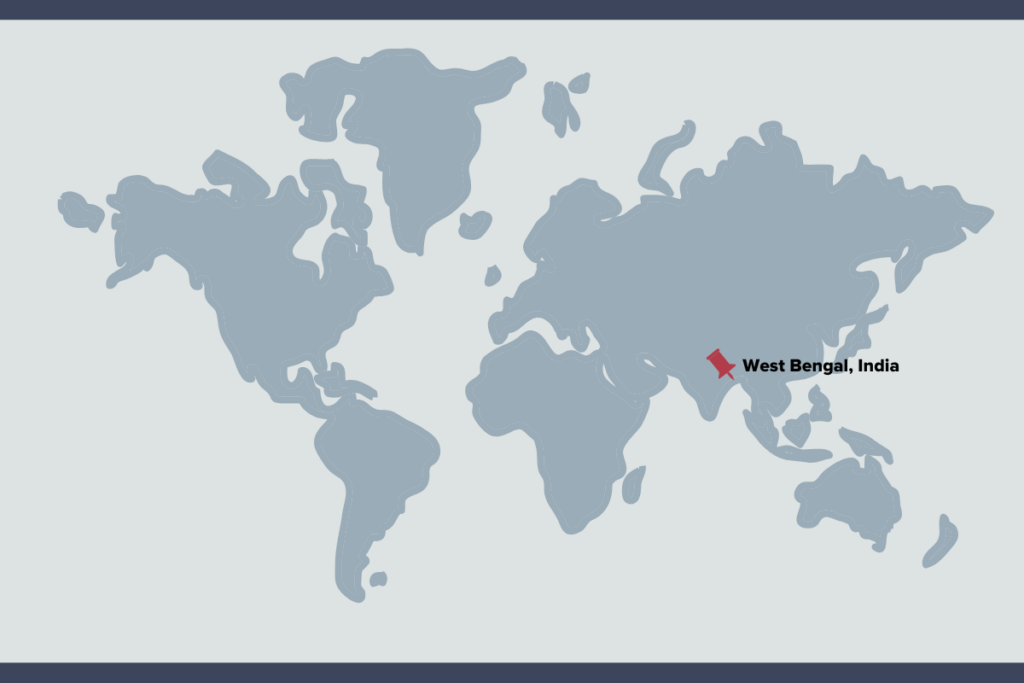Center for Climate, Health, and the Global Environment
We seek climate solutions that can provide for a healthier and more just world today and a livable future for our children.
Building 1, Room 1312
Building community-driven climate resilience in West Bengal
Impact level: Communities
Location: Coastal villages in West Bengal, India
What problem are we trying to solve?
Extreme weather events like the 2020 cyclone that hit West Bengal and caused $13 billion in damages disrupt every aspect of life for coastal communities in developing countries. Schools close, sometimes permanently, as children are pulled out to help families recover. Essential documents like school certificates are lost in floods, with lifelong consequences. Critical services are interrupted, diseases spread, farmland becomes less fertile, and mental health challenges rise sharply. While these communities contribute very little to global carbon emissions, they suffer the most from the effects of climate change.
We want to understand these lived experiences to identify needs and solutions that are effective and long overdue, starting with practical fixes like digitizing school certificates and moving toward bigger policy changes that build community resilience.
What climate and health solution are we researching?
We’re developing a community-driven approach to boost climate resilience in areas that are repeatedly impacted by extreme weather. First we will identify how extreme weather affects the community through health, economic disruption, displacement, education, food insecurity and malnutrition, and gender-based vulnerability. Our top priority is understanding what matters most to those most impacted by climate change. We’ll then work with community members and trusted partners to implement and assess climate solutions and scale these programs along the coastline of the Bay of Bengal.
For example, we’re exploring employment opportunities in ecological restoration, like planting and preserving mangrove forests that aid in both carbon sequestration and coastal protection. This addresses climate change, creates economic opportunities, and helps communities take charge of their future.
What’s the level of impact?
Our work begins at the community level, in villages along the West Bengal coast. We plan to convene community leaders, health workers, local government and members of the community to discuss needs and design interventions that solve challenges they have identified. If the model is successful, we plan to expand these efforts along the coastline and adapt lessons learned to other regions facing similar threats. System-level partnerships with local governments and organizations will be key.
Ultimately, we aim to inspire changes that not only protect against extreme weather but also build social and economic resilience across cities and communities.
Who will this research benefit?
Our research is focused on Indian coastal communities where extreme weather is intensifying, and recovery is a daily struggle. We’re especially committed to understanding the experiences of young people, who are often pulled from school to help families rebuild, and adolescents, whose futures are shaped by these disruptions. We will work closely with residents to develop solutions that improve their lives, then share what we learn with other at-risk communities.
Who are the collaborators, key partners, and stakeholders?
This project is built on strong local and global partnerships. We’re working closely with the Child in Need Institute, local public health institutions, and local government officials. We’re also collaborating with national nonprofits and global agencies.
Where is the research happening?

Our research is centered in West Bengal, India—specifically along the coastal regions facing increasing risks from cyclones and sea level rise. This is one of many high-poverty areas experiencing the most severe impacts of climate change around the world, and insights from our work with this community can guide adaptation efforts in other regions facing similar challenges.
What data resources can people use as a result of this project?
We’re developing a comprehensive survey tool to help communities assess their climate risks and resilience needs across key areas: mental health, gender equity, education, economic stability, and environmental sustainability.
This interview guide aims to spark honest conversations, allowing us to collect qualitative data about what matters most to residents. By refining and sharing these tools, we hope others can replicate our approach, prioritize interventions, and track progress, ensuring support goes where it’s needed most.
Learn more
To get in touch with the research team, contact Anna Miller.